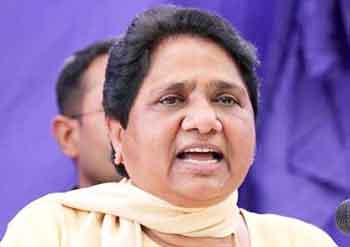In recent discussions surrounding women’s safety, Mayawati, the President of the Bahujan Samaj Party and former Chief Minister of Uttar Pradesh, has emerged as a crucial voice. On Sunday, she articulated her profound concerns regarding the alarming rise in crimes against women across India, sparking a necessary dialogue on the failures of government policies in ensuring the safety and dignity of women.
A Call for Reflection on Government Policies
Mayawati took to social media platform X to express her discontent, highlighting the heart-wrenching incidents that have plagued various states, including Uttar Pradesh, Bengal, Odisha, and Karnataka. She emphasized that the current political climate, characterized by allegations and counter-allegations, detracts from the urgent need to address the safety of women. This rhetoric signals a critical point in the ongoing conversation about how effective current government measures are in protecting women from violence and discrimination.
Questioning Intentions: Are Governments Truly Committed?
One of the most compelling aspects of Mayawati’s statement is her insistence that there may be a flaw in the intentions of the governments concerning women’s safety. This assertion raises an important question: are the current policies designed with genuine concern for women’s welfare? The persistent crimes against women suggest a systemic failure that transcends individual cases, reflecting a broader issue within the political framework of the country.
The Role of Law Enforcement in Women’s Safety
In her remarks, Mayawati also addressed the negligence of the government and the police. The alarming frequency of crimes against women can often be attributed to a lack of effective law enforcement. When the institutions that are meant to protect citizens fail to act decisively, it fosters an environment of impunity for offenders. Mayawati’s concern regarding police involvement in such heinous crimes only exacerbates the situation, undermining public trust in law enforcement.
The Need for Serious Action and Accountability
Mayawati’s urgent call for fair and serious action against crimes targeting women cannot be overstated. It is imperative that governmental bodies not only address these incidents but also ensure that accountability is upheld throughout the legal process. This commitment to justice is vital in restoring faith among women and the public in general regarding the protection of their rights and safety.
Understanding the Broader Context of Women’s Safety
The discussion initiated by Mayawati touches on a broader societal issue. Women’s safety has become a pressing concern in India, with statistics revealing a disturbing trend of rising violence. According to the National Crime Records Bureau, incidents of crime against women have shown an upward trajectory, highlighting the urgent need for comprehensive policy reforms.
Exploring the Root Causes of Violence Against Women
To address the crisis of women’s safety effectively, it is essential to explore the root causes of violence. Societal attitudes towards women, inadequate legal frameworks, and the lack of education on gender equality contribute significantly to the persistence of gender-based violence. Mayawati’s observations invite us to reconsider how cultural norms and institutional policies may perpetuate this cycle of violence.
The Role of Public Awareness and Advocacy
Public awareness plays a crucial role in combating violence against women. Advocating for women’s rights and increasing visibility of issues related to gender-based violence can help foster a safer environment. Organizations and leaders, including Mayawati, must push for community engagement and educational programs that empower women and encourage a culture of respect and safety.
A Unified Response from Political Leaders
In light of Mayawati’s statements, it is clear that a unified response from all political leaders is crucial. Collective action can amplify the message that women’s safety is a priority and that governmental accountability is non-negotiable. Political leaders must come together, transcending party lines, to craft policies that are inclusive, effective, and designed to combat violence against women comprehensively.
The Path Forward: Policy Recommendations
As we contemplate the statements made by Mayawati, it is imperative to propose concrete policy recommendations that can lead to real change:
- Enhanced Legal Frameworks: Strengthening laws related to sexual assault, domestic violence, and harassment can create a more robust legal framework that protects women.
- Training for Law Enforcement: Providing comprehensive training for police on gender sensitivity and crisis management can enhance the effectiveness of law enforcement in dealing with cases of violence against women.
- Community-Based Programs: Initiating programs that promote community awareness and education can empower individuals to take an active role in supporting women’s rights and safety.
- Support Systems for Victims: Establishing accessible support services, including hotlines and shelters, is vital for providing immediate assistance to victims of violence.
- Regular Monitoring and Evaluation: Implementing systems for the regular monitoring of crimes against women and evaluating the effectiveness of policies can help ensure that the government remains accountable.
The Urgency of Action
The statements made by Mayawati highlight a critical juncture in the ongoing discourse about women’s safety in India. As a society, we must prioritize serious action and reflect deeply on the intentions behind our policies. The call for greater accountability, improved law enforcement, and comprehensive educational initiatives is not just timely; it is essential. Women deserve to live in a society where their safety is guaranteed, and their rights are respected.
In summation, as we heed the concerns voiced by Mayawati, we must collectively strive to create a future where crimes against women are not only addressed but eradicated. The dialogue must continue, and actions must follow to ensure that no woman is left vulnerable in the face of violence.
















